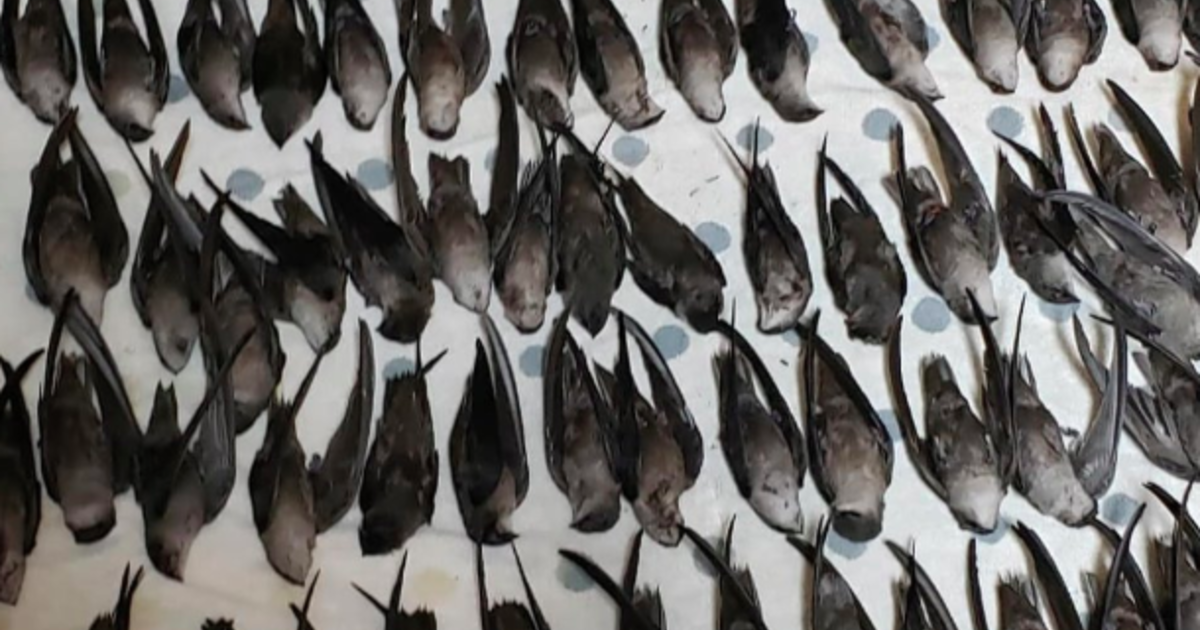
Hundreds of migratory birds crashed into the NASCAR Hall of Fame building in Charlotte, North Carolina, Tuesday night. A nonprofit helping the survivors said a total of 310 birds hit the building’s windows.
About a third of the birds were dead when the nonprofit’s team arrived. Nine had to be euthanized and 103 were critically injured, with broken wings, legs or other fractures, said Carolina Waterfowl Rescue, a wildlife rescue organization based in Charlotte. The rest of the birds were stunned and should be released in the next few days.
Carolina Waterfowl Rescue said on social media its rehabilitation team arrived at the NASCAR building after receiving a call around 11 pm Tuesday night. They identified the birds as chimney swifts, aerial insectivores which will need to be individually hand-fed worms due to their injuries.
Trending News
“It’s an expensive endeavor but these birds are an incredible contributor to our eco system and eat hundreds of mosquitos a day,” the organization said.
Chimney swifts are migratory birds that travel during the fall from the U.S. to Peru and other parts of South America. They feed on insects while flying and nest in chimneys and other hollow structures.
While chimney swifts typically fly higher, rainy weather can cause them to forage lower to the ground. Additionally, bright lights are known to attract birds and can cause them to slam into buildings at high speeds. According to the National Audubon Society, building collisions kill hundreds of millions of birds every year.
Many supporters on social media are calling on NASCAR to donate to rehabilitation efforts.
“We are extremely grateful to Charlotte City Services, the Animal Control division of CMPD and Carolina Waterfowl Rescue for their prompt response and for handling the situation with great care and compassion,” a NASCAR Hall of Fame spokesperson told CBS News. “We welcome the opportunity to meet with representatives from The Audubon Society and learn what may be the root cause of this regrettable incident.”
The Hall of Fame also said it would reduce lighting to help with the issue.
“The NASCAR Hall of Fame Plaza is a public space that is frequented well into the night, and evening events are a critical component of the NASCAR Hall’s success,” the spokesperson said. “Finding a balance between operations and safety is our goal. After learning more, we are willing to evaluate potential adjustments that we hope would mitigate future occurrences. Following the conclusion of a scheduled event at the Hall tonight, we will reduce lighting to a minimal level. Continued dialogue to address concerns regarding this matter is important to us.”
View this post on Instagram
A post shared by Carolina Waterfowl Rescue (@waterfowlrescue) on
Over the last 50 years, the U.S. and Canada have slowly but surely lost 29% of their bird populations — amounting to nearly 3 billion birds. The shocking loss could be a sign of an ecological crisis, scientists said last month.
While not all of the factors for the mass decline have been pinpointed, researchers say habitat loss is a major concern.
“This is being caused entirely by humans. Habitat loss, which is the primary driver here, is a human-caused issue,” said the study’s co-author Peter Marra, director of the Georgetown Environment Initiative.

